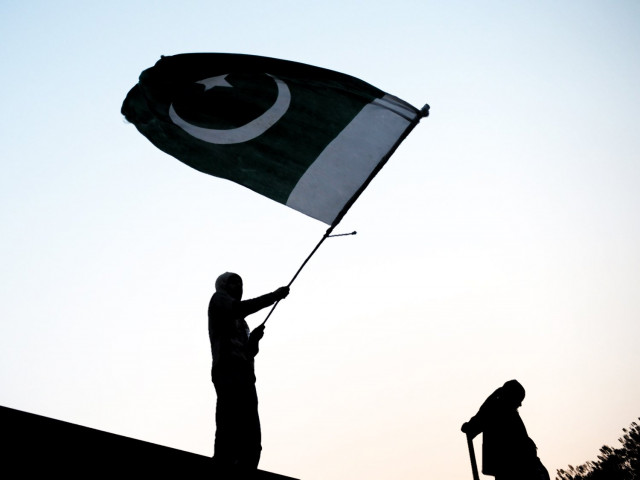The struggle for being a ‘Normal State’
Every major area of national activity is facing a serious crisis whether it is the economy or national politics

PHOTO: AFP
There are varying models of governance among the Muslim countries too. Most of them, regrettably, are under autocratic regimes with a few exceptions like Turkey, Malaysia, Indonesia and Bangladesh, etc. They too have their shortcomings but at least have opted for democracy and are certainly faring better and have a more promising future in the long term than the ones that are clinging on to monarchies and military dictators.
The reason for drawing these parallels is to question: Where does our country stand and which direction do we want to proceed in? For it is still not clear after seventy-two years of country’s existence if the political parties and institutions are fully committed to democracy. Or do they still feel that we as a nation are not ready for it. For it is not merely a question of having national and provincial elections every five years but adhering to the Constitution and the rule of law in letter and spirit.
Are the parliament, cabinet and the Prime Minister performing and exercising authority in accordance with the Constitution? Or we as a nation remain a model that is somewhere between autocracy and democracy or struggling to replicate both South and North Korea at the same time. Adding to this muddle, PM Imran Khan lately, and a few rulers before him, talked of the other variants like Malaysia and Singapore that are successful countries but have different power centres — some lying within and some outside the conventional democratic boundaries. All this reflects the extent of ideological confusion that prevails about the future of democratic development and uncertainties associated with reforms. For we should not forget that political legitimacy is linked to popular support and to the ability of the government to perform and deliver to peoples’ minimum expectations.
It is normal even in most mature democracies that differences are present among stake- holders in priorities and emphasis on national and international issues but eventually a consensus is found that is supposed to serve the best national interest. However, this pursuit remains within constitutional boundaries and is achieved through extensive debate on appropriate forums. In Pakistan, we are generally disregarding these norms. As a consequence of this vacuum, the military and other state institutions have to play a larger role than is expected in normal democracies.
Democracy by its very nature is noisy and at times chaotic. Moreover, countries like ours that have faced multiple challenges ever since their birth take longer to build political institutions. But this should give no reason for not strengthening the centre of power, which should be the parliament. In fact there is a greater requirement to energise parliament and strengthen institutions. A strong parliament and a vibrant civil society contribute toward building better awareness about economic and political issues.
The more fundamental question is if the present power structure is working to Pakistan’s advantage? And if not, is it possible that certain changes could be affected? Is there sufficient realisation among the political leaders that despite their serious differences, this aspect needs to be addressed on priority?
We also have to assess as to how the world is looking at us. Our adversaries are exploiting national vulnerabilities to maximise pressure and keep us on the defensive? So every effort should be made to come out of the present predicament in which all institutions should cooperate to find an answer.
As we are all a party to where the country stands, it would serve no purpose to indulge in this endless exercise of blaming the other. This would only increase our national frustrations. What is needed is to engage in a serious debate to find answers to earn national dignity and place that the country deserves.
One thing is clear our existing model of power configuration and policymaking is proving very costly. Every major area of national activity is facing a serious crisis whether it is the economy, national politics or external relations. This needs no elaboration, as we are living and experiencing it all the time.
The government cannot continue to romanticise that we have turned the corner or about to do so in the next few months. There would, hopefully, be incremental improvement and relief after a year or two and the government would have breathing space. But the chronic economic problems would remain until structural changes are not put in place. And in the present environment despite the harsh prescription by the IMF and the government’s drive to step up pressure to increase the tax base, only modest progress is expected.
The political pattern in our country is taking on a depressing shape. There has to be a realisation among political parties that confrontational politics is pushing the country in a blind alley. Of great concern are the consequences that could result with unfilled expectations and the euphoria created after projection of Naya Pakistan.
One expects political parties will work toward restoring the power of parliament and focus on policies and legislation that improve the quality of life of ordinary people. At present, political power is being dissipated in mutual squabbling instead of harnessing it for national uplift. Whereas, setting aside partisan differences and building the framework of the country is what people are expecting from their leaders.
Published in The Express Tribune, June 26th, 2019.
Like Opinion & Editorial on Facebook, follow @ETOpEd on Twitter to receive all updates on all our daily pieces.















COMMENTS
Comments are moderated and generally will be posted if they are on-topic and not abusive.
For more information, please see our Comments FAQ